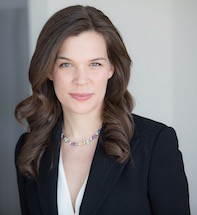
Language matters. Evidence matters. Transparency matters. In 2017, these may sound like political statements, but they are not intended to be. For those of us in the business of solving the world’s most intractable problems, they should be the fundamental tenets of our work. Nothing political, but simply the most efficient way to proceed: define your problem, design or fund programs based on sound evidence, develop and follow set protocols for your intervention and evaluation, report results in good faith. And as we look for effective ways to design and achieve system-wide change, these golden rules become even more important.
At this year’s Social Impact Exchange gathering – held in two exciting content-rich days in mid-June – presenters and delegates explored myriad methods for achieving impact at scale: systems-thinking to uncover the best leverage points, cross-funder collaboration, partnership with government and other stakeholders, market forces, systemization of existing knowledge and entrepreneurial chutzpah. The golden rules were perhaps taken as given, but we should be careful not to lose sight of them as our goals become more ambitious.
If funders are to collaborate effectively, for example, communication is key. Trust and respect provide an important foundation, but open communication protects relationships for the work ahead. Collaborators need to learn how to achieve line-by-line consensus on the definition of the problem they are hoping to address, the leverage points to address it, an assessment of the evidence, and evaluation and reporting methods. To avoid any confusion of tongues, funder collaboratives need to commit to creating a shared language comprised of clearly defined terms and agreed upon framing of messages. We can’t underestimate the difficulty of doing this. Funders who have focused on traditional grant making each have their own way of doing things and reaching consensus is hard work. It takes time, an open mind and professional writing to accurately express the views of a group.
One example of a collaborative that has committed to this difficult consensus-building work around language is the five-foundation collaborative formed by The Commonwealth Fund, the John A. Hartford Foundation, the Robert Wood Johnson Foundation, the Peterson Center on Healthcare and the SCAN Foundation. In 2016, the foundations joined forces to “improve health and reduce costs for chronically ill patients with complex care needs.” As Emily Zyborowicz of the Peterson Center described, each of the terms in that statement was carefully crafted, and one of the biggest challenges in developing the collaborative was agreeing on the precise definitions of each. What does it mean to “improve health?” Who are we talking about when we say, “chronically ill patients?” And what does it mean to have “complex care needs?”
Equally important for collaboration, is communication and transparency around what consultants call “roles, goals and procedures.” This ensures that everyone has the same expectations and understanding of the task at hand and how it will be accomplished. For collaboration to be fruitful, leaders and their teams need to be clear on what they are working towards, and confident that others will contribute their piece. As we heard from the incomparable Atul Gawande, a keynote speaker at the Social Impact Exchange conference, there is no one correct formula for systematizing our knowledge – it is always dependent on context – but the evidence shows that you do need a system.
Finally, collaboration to scale impact also means winning widespread support from stakeholders. As one funder put it to me, “we expend all this energy on programming and program support but we often leave communication on the table – no one knows what we are doing and why we are doing it.” Funders who can publicize their work to policymakers, community partners and the public create engagement with their vision and their mission, and plant the seeds of support to scale successful programs.
Saskia Siderow, MPH, is a healthcare analyst, writer and media consultant, and the founder of boutique healthcare consultancy Ormond House, LLC.